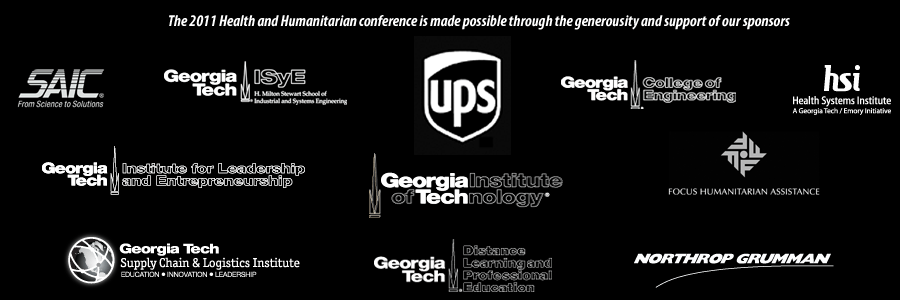Speakers
Below are the speakers for this year's conference. A listing in alphabetical order can be found within the right-hand menu.
Click on an individual's name to jump to their bio. 
Please also view the separate listings for our moderators and workshop presenters.
Speaker Bios
Michael Best
Georgia Institute of Technology
Assistant Professor, Sam Nunn School of International Affairs and School of Interactive Computing

Dr. Michael L. Best is assistant professor at the Sam Nunn School of International Affairs and the School of Interactive Computing at Georgia Institute of Technology where he is also research faculty with the GVU Center and directs the Technologies and International Development lab. He is also a Faculty Associate of the Berkman Center for Internet & Society at Harvard University. Professor Best is co-founder and Editor-in-Chief of the widely read journal, Information Technologies and International Development. He is a frequent consultant to the World Bank, ITU, and USAID. He holds a Ph.D. from MIT and has served as Director of Media Lab Asia in India and head of the eDevelopment group at the MIT Media Lab.
Martijn Blansjaar
Oxfam Great Britain
Head of Logistics and Supply, International Division
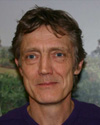
Martijn Blansjaar started in humanitarian assistance with Medecins Sans Frontieres - Holland as all-round technician/logistician in their Uganda program in 1987. From there on he spent a good five years in the field, predominantly in East Africa working for MSF-Holland and others in logistics, various technical and project co-ordination positions and as Head of Mission. In 1994 he joined MSF-Holland HQ at Logistics Department for special assignments on pharmaceutical distribution programs, major emergencies and a review of food aid programs, which he combined with a study of integrated logistics management, continued in the late 1990s by undertaking an MBA. In 1997 Martijn became Coordinator for Technical Support and from March 2001 Director of Logistics in MSF-Holland. In November 2006, he joined the International Division of Oxfam GB as Head of Logistics and Supply in their headquarters in Oxford. Outside his regular jobs he has been active since 2003 in various aid-sector initiatives on the promotion and development of Humanitarian Logistics. He is a Board member of the HELIOS Foundation for supply chain, on the Executive Committee of the Humanitarian Logistics Association and sits on the Advisory Committee that works with Fritz Institute and the Chartered Institute of Logistics & Transport to develop and maintain a professional Certification for Humanitarian Logistics. Martijn has collaborated in research, curriculum development and as guest lecturer with various Universities including MIT (Zaragoza), Cranfield, USI Lugano, INSEAD and Hanken.
Carol Chan
USAID
Deputy Director, Office of U.S. Foreign Disaster Assistance

Carol Chan serves as USAID’s Deputy Director of the Office of U.S. Foreign Disaster Assistance (OFDA), which is responsible for facilitating and coordinating U.S. Government emergency assistance overseas.
Leading a worldwide staff of more than 250 disaster response and mitigation experts, Ms. Chan guides strategic planning, policy formulation, and program development for the office. In fiscal year 2010, OFDA responded to 73 disasters affecting tens of millions of people in 56 countries and provided more than $974 million for emergency relief supplies and relief and mitigation activities.
Ms. Chan joined OFDA in 1997, serving most recently as Acting Director and prior to that as Division Chief for Program Support, where she managed the office’s budget, procurement, and information management resources. She has also led several major disaster response efforts for USAID, including the earthquake and cholera outbreak in Haiti and floods in Pakistan.
Prior to working in OFDA, Ms. Chan was a contracts officer in USAID’s Office of Acquisition and Assistance, supporting development programs and providing contracting support to USAID missions. Ms. Chan has more than 20 years of USAID experience and spent several years working in the private sector in the freight forwarding and international banking industries in New York City.
Ms. Chan was selected to join the Senior Executive Service in September 2009. She holds a Bachelor’s degree in East Asian studies with a minor in Business Administration from Wittenberg University.
Stephen Cross
Georgia Institute of Technology
Executive Vice President for Research

Dr. Stephen E. Cross is the Executive Vice President for Research of the Georgia Institute of Technology. He also holds faculty appointments as a Professor in the School of Industrial and Systems Engineering and as an Adjunct Professor in the College of Computing and the College of Management. Within Georgia Tech, he serves on the President’s Cabinet and on the advisory board for the Georgia Tech-Emory Collaboration for Regenerative Medicine. He served as a Vice President and Director of the Georgia Tech Research Institute from 2003 until assuming his current position in 2010.
Previously, Dr. Cross was a research faculty member at Carnegie Mellon University in the School of Computer Science and the Director of the Carnegie Mellon Software Engineering Institute. Earlier in his career, he was a Program Manager at the Defense Advanced Research Projects Agency and a faculty member at the Air Force Institute of Technology. His experience includes various R&D assignments spanning research, engineering development, and flight testing. A retired military officer, he received the Air Force Research Award in 1986 and the Federal 100 Award in 1992. He is a distinguished alumnus of the College of Engineering of the University of Cincinnati where he received his B.S.E.E. His M.S.E.E. and Ph.D. are from the Air Force Institute of Technology and the University of Illinois at Urbana-Champaign respectively.
Dr. Cross is a member of the Defense Science Board and also serves on the advisory board for the Alabama A&M Research Institute. A past member of the Air Force Scientific Advisory Board, Dr. Cross has supported numerous studies by the National Research Council, testified to Congress on several occasions, and served as a consultant to many government and industry organizations. He has published widely on artificial intelligence, software engineering, and technology transition. Dr. Cross is a Fellow of the Institute of Electrical and Electronic Engineers (IEEE) and a former editor-in-chief of IEEE Intelligent Systems. He is currently an Associate Editor of the online Journal of Information, Knowledge, and Systems Management.
Matthew Freeman
Emory University
Research Program Manager, Center for Global Safe Water

Matt Freeman, MPH is a Research Project Manager for Center for Global Safe Water at Emory University. His research is focused on schools-based water, sanitation, and hygiene programs in the developing world. His interests are in the equity of access to WASH improvements, knowledge diffusion through school children, and improving monitoring systems for implementers. Matt is a PhD candidate with the Faculty of Infectious and Tropical Disease at the London School of Hygiene and Tropical Medicine. His dissertation focuses on analysis of the role of household and school sanitation and hygiene access on helminth reinfection and absenteeism in Kenya. He has ongoing work in Kenya, Ethiopia, Mali, and India.
Jarrod Goentzel
MIT Supply Chain Management Program
Executive Director

Jarrod Goentzel is Executive Director of the MIT Supply Chain Management Program. He is also a Research Associate at the MIT Center for Transportation & Logistics with research interests in the areas of supply network design, supply chain finance, humanitarian logistics and renewable energy supply chains. Previously, Dr. Goentzel directed the MIT-Zaragoza International Logistics Program, leading MIT’s role in developing novel education, research, and outreach programs in partnership with the Zaragoza Logistics Center in Spain.
Dr. Goentzel has worked in logistics & supply chain management for over fifteen years leading consulting projects, designing software, and educating executives. He received a PhD from the School of Industrial and Systems Engineering at the Georgia Institute of Technology, a M.S. in applied mathematics from Colorado State University, and a B.A. in mathematics from Tabor College with studies at the Technical University of Budapest (Hungary).
Jennifer Green
Oxfam America
Humanitarian Logistics Specialist

As the Humanitarian Logistics Specialist at Oxfam America headquarters, Jennifer is responsible for defining global logistics policies and procedures, providing training for logistics staff, managing international procurement, and working with the Regions to coordinate the logistics response during an emergency. Prior to joining Oxfam, Jennifer worked for 19 years in a variety of positions in the commercial, government, and non-profit sectors. Following her degree in Aerospace Engineering at Virginia Tech, she worked for Boeing for 12 years and provided engineering analysis and integrated logistics support to numerous NASA programs. After volunteering for two years in West Africa, Jennifer started her own consulting company and worked as a subject matter expert on space logistics and lunar system reliability and maintainability. Jennifer has worked with universities and NGOs in Kenya, Benin, Russia, the US and other countries. She is a Research Affiliate at the MIT Engineering Systems Division and is currently pursing a Master’s in Humanitarian Logistics and Management at the University of Lugano in Switzerland.
Lisa Hare
John Snow, Inc.
Director of Task Order Malaria - USAID | DELIVER PROJECT
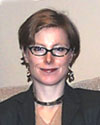
Lisa Hare has over 20 years of experience in strengthening health systems and building the capacity of people to manage those systems. She works for John Snow, Inc. and currently serves as the Director of Task Order Malaria under the USAID | DELIVER PROJECT. This task order, funded under the President’s Malaria Initiative, aims to expand access to key malaria control interventions through: the procurement and provision of antimalarial medicines (ACTs), insecticide treated nets (LLINs) and malaria rapid diagnostic tests (RDTs); strengthening in-country supply systems in 12 African countries; and improving global supply and the availability of malaria commodities. In addition to leading Task Order Malaria, Ms Hare provides consulting services in supply chain design and strengthening. She recently led a multi-disciplinary team that supported the Liberian Ministry of Health and Social Welfare to establish a ten year supply chain strategic plan. Prior to leading Task Order Malaria, Ms. Hare served as Director for Country Programs, supporting 20 country offices to improve the availability of essential health commodities through supply chain strengthening and promoting commodity security. Ms. Hare holds a Masters of Public Health from Boston University and has worked in all regions of the world.
Donald Hicks
LLamasoft, Inc.
President and CEO

Donald A. Hicks is the founder, President and CEO of LLamasoft, Inc. Mr. Hicks is a leading industry visionary on supply chain strategy and technology issues and a highly sought after speaker and author. Over the last 15 years, Mr. Hicks has personally consulted with and coached top executives and leaders of hundreds of private and public organizations around the world, such as the US Department of Defense, the World Bank, USAID, and the World Health Organization. Hicks has worked directly with supply chain executives in the Health ministries of the governments of Kenya, Lesotho, Dominican Republic, El Salvador, and Panama on restructuring public health supply chains to improve customer service and reduce costs. Mr. Hicks graduated from the US Military Academy at West Point with a BS in Systems Engineering in 1990, and completed an MBA at the Ross School of Business at the University of Michigan in Ann Arbor in 1996.
Joseph Hughes
Georgia Institute of Technology
Karen and John Huff School Chair and Professor, School of Civil and Environmental Engineering

Joseph Hughes received his Ph.D. and M.S. degrees from the University of Iowa in Civil and Environmental Engineering and a B.A. from Cornell College in Chemistry. He is a Professor of Civil and Environmental Engineering, Professor of Material Science and Engineering, and the Karen and John Huff School Chair of Civil and Environmental Engineering at the Georgia Institute of Technology. Prior to his appointment at Georgia Tech, he was on the faculty of Rice University, also serving as a Professor and Department Chair of Civil and Environmental Engineering. He has received the McKee Medal from the Water Environment Federation; the Walter P. Huber Research Prize from the American Society of Civil Engineers; the Charles Duncan Award for Outstanding Academic Achievement at Rice University; is a member of Chi Epsilon, and twice was recognized with the ASCE Outstanding Professor Award at Rice University. He has been active in the National Academy of Engineering’s Frontiers of Engineering program as a speaker and organizer; is a Diplomate (by Eminence) of the American Academy of Environmental Engineering; and, was a member of the U.S. EPA science advisory committee on Environmental Engineering. He has published extensively in journals, book chapters, edited books, peer reviewed conference proceedings, and is often invited to address audiences in issues ranging from his research specialties to global issues of sustainability, energy the environment, and urban renewal.
Kathryn Kempton
Partners in Health
Director of Procurement

Kathryn Kempton is the Director of Procurement at Partners In Health. She has worked at PIH for 12 years and has overseen the growth of the logistics and procurement efforts to serve PIH’s expansion within Haiti, as well as the implementation of health projects in three African countries. Ms. Kempton has extensive experience managing essential drug programs in resource-poor settings, from the programs’ inception and through periods of rapid expansion. She has worked closely with the World Health Organization to address issues of access to drugs for the treatment of multi drug-resistant tuberculosis, and has also collaborated with the Global Fund to Fight AIDS, TB and Malaria on the provision of generic anti-retroviral drugs for HIV+ patients. Although PIH is not a disaster response organization, Ms. Kempton and the procurement team at PIH have been deeply involved with earthquake recovery and the recent cholera outbreak in Haiti. Ms. Kempton holds a Bachelor of Science degree from Boston University.
Donald "Doc" Lumpkins
FEMA - National Preparedness Directorate
Chief, National Planning Coordination & Assistance

Doc Lumpkins currently serves as Branch Chief for National Planning Coordination and Assistance at FEMA Headquarters. In this position he oversees the development of national planning doctrine, catastrophic preparedness planning initiatives and tailored technical assistance programs to support prevention, protection, response, recovery and mitigation missions. Mr. Lumpkins is the lead author/editor for Comprehensive Preparedness Guide 101, which provides planning guidance for the development and maintenance of emergency operations plans and the lead editor for a number of upcoming guides. Additionally, he operates the Regional Catastrophic Preparedness Grant Program, which focuses on planning for the most extreme hazards faced by major urban areas around the nation.
Prior to joining the Federal government, Mr. Lumpkins served as Assistant Director for Domestic Preparedness at the Maryland Emergency Management Agency where he led the development and implementation of the State’s consequence management policy for weapons of mass destruction and cyber-terrorism incidents. Mr. Lumpkins served as a liaison with law enforcement during the 9/11 terrorist attacks and has provided operational and ESF #5 leadership during a number of natural disasters and HAZMAT events, as well as the 2001 Anthrax attacks where he oversaw the operations and logistics for the deployment of the Strategic National Stockpile. As Assistant Director, Mr. Lumpkins also worked closely with the Maryland General Assembly to address homeland security and emergency management priorities, as well as supported and participated in media interviews and public outreach during major events and disasters.
Mr. Lumpkins earned his Bachelor of Science in International Affairs from the Georgia Institute of Technology and his Juris Doctor from the University of Baltimore in Baltimore, Maryland.
Mike Mantel
Living Water International
President and CEO
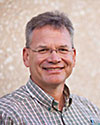
Dr. Michael J. Mantel is President & CEO of Living Water International, a global implementer of water solutions in 24 developing countries. Prior to joining Living Water International in 2008, Mike led World Vision’s regional, area and metro teams in the central United States for 17 years. Mike is a graduate of Calvin College with a BA in Business Economics and holds a Certification in Executive Training in Social Innovations and Global Change Management from Case Western. He earned his Ph.D. in Organization Development from Benedictine University and earned his Certified Fund Raising Executive (CFRE) Credentials from CFRE International in Alexandria, VA. Mike was a professor at both Eastern University & Benedictine University. He serves on the Advisory Board of the Center for Values-Driven Leadership at Benedictine University. In addition to his extensive experience learned through his international travels, Mike is also an experienced corporate consultant and a marathon runner, and resides with his family in Houston, Texas.
Paul Molinaro
UNICEF Supply Division
Senior Manager, Change & Development
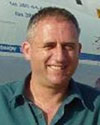
Responsible for coordinating of a number of change management projects designed to transform the UNICEF supply function. Within the Supply function, Paul currently leads the Innovation Technology, Data Analysis and Knowledge Management Units. He holds an MSc in Defence Logistics Management from Cranfield University and has over 15 years experience with emergency logistics operations in a number of different countries and with different agencies. Paul has been with UNICEF since the end of 2001, first as Logistics Coordinator for Afghanistan then, from 2004-09, as Emergency Logistics Manager in UNICEF Supply Division, the Supply HQ of UNICEF based in Copenhagen, Denmark.
Jules Pieters
World Health Organization
Coordinator - Emergency Operations Support | Health Action in Crises

Jules Pieters is Coordinator of Emergency Operations Support of the World Health Organization’s Health Action in Crises cluster (WHO/HAC). Jules joined WHO in 2001, working on polio eradication, pandemic influenza preparedness, and (since the Tsunami in 2004) in humanitarian emergency response. After serving since 1985 as head of the King Fahad hospital’s ICU in Jeddah, Saudi-Arabia, Jules started his career in international health and humanitarian response in 1987 with Médécins sans Frontières (MSF) in North Darfur, Sudan. In the 23 years that followed he has served continuously in management positions at HQ and field level in MSF and other NGO's, covering every major crisis worldwide, in many countries ranging from Iraq to Rwanda to DPR Korea, Somalia and Bosnia. The Emergency Operations Support team in HAC provides logistics and administrative support to WHO’s emergency response and recovery operations throughout the world. Depending on the type of the emergency, Jules acts as lead or co-lead of the emergency response through the WHO common operations platform. Together with his team he also manages the WHO stocks in the United Nations Humanitarian Response Depots (UNHRDS) and facilitates surge actions and the activation of the roster of deployable human resources. Jules is happily married and father of three daughters, and is currently studying in his limited spare time for a Master in Humanitarian Logistics and Management degree at the University of Lugano, Switzerland.
Kerry Schneider
SIPRI, EthicalCargo
Training Coordinator/Assistant Researcher

Kerry Schneider is a training coordinator and assistant researcher at SIPRI for CIT-MAP and the EthicalCargo project. He has has studied Anthropology at Indiana University and International Humanitarian Action at the University of Uppsala, Sweden. He has been involved in rescue and recovery operations after the tsunami responding to isolated island communities in West Sumatra Indonesia. Since working with SIPRI, he has provided training to more than 50 humanitarian organizations and government officials around the world.
Sergio Silva
United Nations World Food Programme
Project Coordinator, Logistics Development Unit

Sergio Silva has dedicated his work to human development, in particular in the Aid Sector. Currently pursuing a PhD at the Faculty of Engineering of the University of Porto, with the title: "Human Development: A Proposal for a New Model for Aid", his main area of focus is how to create sustainable innovation, combining the best practices that have been developed by the private sector, aid sector, government, military and universities. His research is centered in areas such as management, information technology and the use of performance indicators.
During his studies, obtaining a bachelor’s degree in Engineering Sciences followed by a master’s in Mechanical Engineering with specialization in Management, he also worked with national logistics companies beginning his experience in Logistics. During the last three years working with the Logistics Development Unit of the United Nations World Food Programme, his work has focused on supply chain issues such as the development of information technology systems and implementation of KPIs, aiming at bringing more effectiveness and efficiency to humanitarian work.
In addition, Sergio is Chairman of the Portuguese NGO G.A.S. Porto, where he developed a vast national and international experience in development projects, human resources management and fundraising. He participated as director for missions to countries such as East-Timor, and also joined missions to several developing countries.
Vivian Singletary
Task Force for Global Health – International Trachoma Initiative
Supply Chain Manager
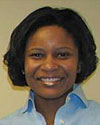
As Supply Chain Manager for ITI at the Task Force, Ms. Singletary is responsible for forecasting, inventory management, coordinating the distribution of Zithromax, and building supply chain knowledge in the countries in which ITI is working. Ms. Singletary has over 15 years of supply chain experience, serving most recently as the Senior Manager of Supply Chain Development at The Home Depot from 2005 to 2009. At Home Depot, she planned mid- to long-range supply chain strategy and managed supply chain optimization projects, including IT system implementations and process improvement. Prior to Home Depot, Ms. Singletary worked for eight years as Senior Site Logistics Manager at Masterfoods USA, a division of Mars, Inc. She holds a Bachelor of Science degree in Industrial Engineering from the Georgia Institute of Technology and a Masters of Business Administration from Kennesaw State University. Ms. Singletary is certified in Supply Chain Management from Fisher Business School.
Tim Smith
Kuehne + Nagel
Vice President for Emergency and Relief

Tim Smith is the Vice-President for Kuehne+Nagel Emergency & Relief in the US. Kuehne+Nagel is one of the largest freight forwarders in the world and "Emergency & relief" is a specialist division which serves the aid organizations. Tim joined Kuehne+Nagel after 7 years as a logistics officer with World Food Progamme in North Korea, Sierra Leone, Tanzania, Southern Africa and HQ Rome (logistics cluster). Prior to that he was a cargo surveyor and marine investigator in South Africa, the UK and Russia. He hopes to share some valuable insight from his years with WFP, the logistics cluster and his time with a commercial transport provider to the aid sector.
Rod Snider
American Red Cross
Sr. Advisor Disaster Preparedness, International Services
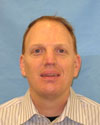
Rod Snider has over 19 years international experience working primarily in post-conflict and disaster settings including 15 years living and working overseas in Kenya/Somalia, Afghanistan/Pakistan, Armenia/Nargono-Karabakh, Serbia/Kosovo and Indonesia. Most of his career has been managing programs in complex emergencies and natural disasters including two 8-month deployments for both the Asian Tsunami in Banda Aceh and the Pakistan Earthquake, where he led large-scale multi-sector emergency responses from the onset of each disaster through initial recovery periods. Rod is currently headquarters based, working for the American Red Cross as a Senior Disaster Preparedness Technical Advisor developing global strategies and project design in disaster risk reduction and climate change adaptation. He holds a Master’s degree in Non-Profit Management from New York University, and a B.A. degree in Business Administration from Washington State University.
Luk Van Wassenhove
INSEAD
Professor of Operations Management and The Henry Ford Chair of Manufacturing

Professor Van Wassenhove’s research and teaching are concerned with operational excellence, supply chain management, quality, continual improvement and learning. His recent research focus is on closed-loop supply chains (product take-back and end-of-life issues) and on disaster management (humanitarian logistics). He is senior editor for Manufacturing and Service Operations Management and departmental editor for Production and Operations Management. He publishes regularly in Management Science, Production and Operations Management, and many other academic as well as management journals (like Harvard Business Review and California Management Review). He is the author of several award-winning teaching cases and regularly consults for major international corporations. In 2005, Professor Van Wassenhove was elected Fellow of the Production and Operations Management Society (POMS). In 2006, he was the recipient of the EURO Gold Medal for outstanding academic achievement. In 2009 he was elected Distinguished Fellow of the Manufacturing and Services Operations Management Society (MSOM), and received the Lifetime Achievement Faculty Pioneer Award from the European Academy of Business in Society (EABIS) and the Aspen Institute. Before joining INSEAD he was on the faculty at Erasmus University Rotterdam and Katholieke Universiteit Leuven. At INSEAD he holds the Henry Ford Chair of Manufacturing. He is also the academic director of the INSEAD Social Innovation Centre.
